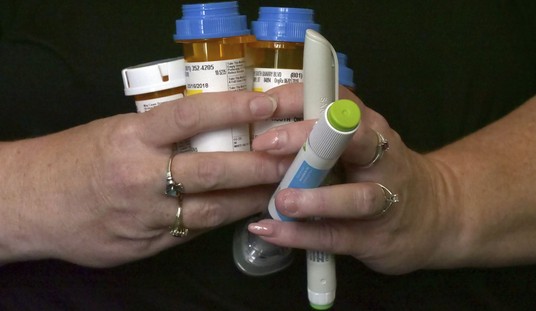Back in the 1970s, when I was first exposed to the idea of decriminalizing illegal drugs, it seemed like a good idea. My interest was abstract: I didn’t smoke pot. My wife and I signed a marijuana decriminalization petition one evening around 1980 for a group that acted like they had fallen out of a Cheech and Chong movie. They asked if we could contribute a joint or two to the cause. They were utterly shocked when we told them: “We don’t smoke pot.” They just could not imagine that anyone would support decriminalization without a more personal interest.
There’s no question that making drugs illegal creates serious problems for our criminal justice system. It clogs the courts, it corrupts police officers and government officials, and it funds some really sleazy people. All of this is true — but it turns out that there are some substantial social costs on the other side that simply don’t get any attention. While it may sound like I have been watching Reefer Madness (1936) — a tragically overwrought portrayal of the dangers of marijuana — it turns out that mental illness is one of those social costs.
A surprising number of scholarly studies in the last 25 years have demonstrated that marijuana use seems to cause an increase in psychoses such as schizophrenia, and somewhat less dramatic mental illnesses such as bipolar disorder.
Let me emphasize: This isn’t just correlation analysis — finding that people with a current mental illness are disproportionately potheads. I am well aware that people with significant mental illness problems tend to “self-medicate” using various psychoactive drugs (including alcohol). No, these are longitudinal studies that show the marijuana use comes first, with the mental illness later in life.
The first of these, involving Swedish conscripts, was published in the Lancet in 1987. Those who had used marijuana heavily by age 18 were six times more likely to develop schizophrenia. A British medical journal paper published in 2002 performed a longitudinal study in New Zealand and found that:
Firstly, cannabis use is associated with an increased risk of experiencing schizophrenia symptoms, even after psychotic symptoms preceding the onset of cannabis use are controlled for. … Secondly, early cannabis use (by age 15) confers greater risk for schizophrenia outcomes than later cannabis use (by age 18). The youngest cannabis users may be most at risk because their cannabis use becomes longstanding.
This paper, from the British Journal of Psychiatry in 2004, should also make you a bit concerned. From the abstract:
On an individual level, cannabis use confers an overall twofold increase in the relative risk for later schizophrenia. At the population level, elimination of cannabis use would reduce the incidence of schizophrenia by approximately 8%, assuming a causal relationship. Cannabis use appears to be neither a sufficient nor a necessary cause for psychosis. It is a component cause, part of a complex constellation of factors leading to psychosis.
There’s unquestionably a genetic component. This Schizophrenia Bulletin (2008) paper tells us:
Cannabis use is considered a contributory cause of schizophrenia and psychotic illness. However, only a small proportion of cannabis users develop psychosis. This can partly be explained by the amount and duration of the consumption of cannabis and by its strength, but also by the age at which individuals are first exposed to cannabis. Genetic factors, in particular, are likely to play a role in the short- and the long-term effects cannabis may have on psychosis outcome. … Evidence suggests that mechanisms of gene-environment interaction are likely to underlie the association between cannabis and psychosis.
Obviously, only a fraction of pot smokers are going to go crazy and join the 1-3% of Americans who are psychotic. Think of smoking marijuana on a regular basis as playing Russian roulette once with a 50-shot cylinder, one of which has a live round. (Of course, now that you know that, maybe you do have to be crazy to smoke marijuana.)
At this point, you may be saying: “Big deal! It’s my life! If I want to smoke pot and risk going crazy, that’s my choice!” I would concede that point, except that as of 2002, schizophrenia alone of the mental disorders was costing the United States $63 billion a year in medical costs and in disability payments. Much of that cost is directly governmental, since schizophrenics usually aren’t able to work and thus are reliant on the government.
You might also argue: “What about alcohol? Doesn’t it have risks?” No question — and these risks have been recognized for a long time. Arguing for decriminalization of marijuana because alcohol is a big problem is like arguing that because one of your feet is gangrenous the doctor should also amputate the healthy foot just to be even-handed. (Or even-footed, I suppose.) If anything, instead of decriminalizing marijuana, we should be looking at discouraging alcohol — and recognizing that while Prohibition didn’t work, there may be approaches more educational, and less drastic, that can.









Join the conversation as a VIP Member